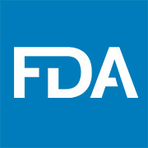The Supplement Surge: Health Freedom or Health Hazard?
March 24, 2025, 3:49 pm

Location: United States, Kansas, Winfield
Employees: 1001-5000
Founded date: 2011
Total raised: $820K
In the world of health and wellness, supplements are the new gold rush. They promise vitality, energy, and longevity. But beneath the shiny surface lies a murky reality. The supplement industry is booming, fueled by a mix of skepticism towards traditional medicine and a growing appetite for alternative health solutions.
The recent political landscape has further ignited this trend. With figures like Robert F. Kennedy Jr. stepping into the spotlight, the narrative around supplements is shifting. Kennedy’s ascent as a health secretary nominee has sparked hope among supplement enthusiasts. They see him as a champion of “health freedom,” a term that resonates deeply in a society increasingly wary of Big Pharma and conventional medicine.
Yet, the facts tell a different story. A significant portion of supplement use is unnecessary. Many people turn to these products without understanding their actual benefits. Research indicates that while some supplements can aid in specific health conditions, the majority do not contribute meaningfully to overall health. The FDA does not require rigorous testing for these products before they hit the market. This lack of oversight opens the door to potential dangers.
Consumer watchdogs have raised alarms. Reports of harmful substances, including lead, have been found in various supplements. A staggering 23,000 emergency room visits each year are linked to supplement use. Critics argue that these figures highlight a troubling trend: the unregulated nature of the supplement industry poses risks to public health.
Despite these warnings, the allure of supplements remains strong. Online communities filled with biohackers and fitness enthusiasts champion their benefits. They share stories of miraculous recoveries and enhanced performance, often fueled by influencers who promote a lifestyle centered around personal responsibility and natural remedies. This growing movement has taken on a populist tone, appealing to those disillusioned with traditional healthcare.
The political backing for supplements has intensified this trend. The Natural Products Association celebrated Kennedy’s nomination, viewing it as a victory for their cause. The overlap between the supplement community and Trump’s administration is striking. Many in this circle share a distrust of established health systems, advocating for a more personalized approach to wellness.
Kennedy’s rhetoric resonates with those who feel marginalized by conventional medicine. He emphasizes the importance of nutritional supplements, often citing anecdotal evidence to support his claims. In a recent interview, he suggested that simple remedies like cod liver oil could effectively treat measles, a statement that raises eyebrows among public health experts. The World Health Organization advocates for vaccination as the primary defense against measles, yet Kennedy’s views challenge this consensus.
The political landscape has shifted the perception of supplements. Polls indicate that supplement use is more prevalent among Republicans than Democrats. This shift may have roots in the pandemic, where trust in scientific institutions became a partisan issue. As Democrats embraced science, many Republicans turned to alternative health solutions, viewing them as a form of rebellion against the establishment.
The supplement industry has capitalized on this shift. Companies are increasingly targeting right-leaning consumers, crafting marketing strategies that align with their values. Ads featuring Trump’s slogans have emerged, blurring the lines between politics and health. This fusion of ideology and wellness has created a unique market dynamic.
However, the implications of this trend are complex. While the supplement industry has seen unprecedented growth, the lack of regulation raises concerns. The FDA’s attempts to impose stricter guidelines have often been met with fierce resistance from industry lobbyists. The result is a landscape where consumers are left to navigate a sea of products with little guidance.
As the demand for supplements continues to rise, the question remains: are we sacrificing safety for the sake of health freedom? The push for deregulation may lead to more options, but it also opens the door to potential dangers. The industry’s growth is not inherently negative, but it must be balanced with consumer protection.
The recent surge in egg prices due to bird flu offers a parallel. The U.S. has turned to Brazil for egg imports, relaxing regulations to address shortages. While this may provide immediate relief, it raises questions about food safety and long-term sustainability. Similarly, the supplement industry’s growth must be tempered with caution.
As consumers, we must be vigilant. The allure of quick fixes can cloud our judgment. Supplements can play a role in health, but they are not a panacea. A balanced diet, regular exercise, and preventive care should remain the cornerstones of wellness.
In conclusion, the supplement industry is at a crossroads. It stands as a beacon of health freedom for some, while posing risks for others. As we navigate this complex landscape, we must prioritize informed choices over blind faith in unregulated products. The path to health should be paved with knowledge, not just marketing hype. The future of wellness depends on it.
The recent political landscape has further ignited this trend. With figures like Robert F. Kennedy Jr. stepping into the spotlight, the narrative around supplements is shifting. Kennedy’s ascent as a health secretary nominee has sparked hope among supplement enthusiasts. They see him as a champion of “health freedom,” a term that resonates deeply in a society increasingly wary of Big Pharma and conventional medicine.
Yet, the facts tell a different story. A significant portion of supplement use is unnecessary. Many people turn to these products without understanding their actual benefits. Research indicates that while some supplements can aid in specific health conditions, the majority do not contribute meaningfully to overall health. The FDA does not require rigorous testing for these products before they hit the market. This lack of oversight opens the door to potential dangers.
Consumer watchdogs have raised alarms. Reports of harmful substances, including lead, have been found in various supplements. A staggering 23,000 emergency room visits each year are linked to supplement use. Critics argue that these figures highlight a troubling trend: the unregulated nature of the supplement industry poses risks to public health.
Despite these warnings, the allure of supplements remains strong. Online communities filled with biohackers and fitness enthusiasts champion their benefits. They share stories of miraculous recoveries and enhanced performance, often fueled by influencers who promote a lifestyle centered around personal responsibility and natural remedies. This growing movement has taken on a populist tone, appealing to those disillusioned with traditional healthcare.
The political backing for supplements has intensified this trend. The Natural Products Association celebrated Kennedy’s nomination, viewing it as a victory for their cause. The overlap between the supplement community and Trump’s administration is striking. Many in this circle share a distrust of established health systems, advocating for a more personalized approach to wellness.
Kennedy’s rhetoric resonates with those who feel marginalized by conventional medicine. He emphasizes the importance of nutritional supplements, often citing anecdotal evidence to support his claims. In a recent interview, he suggested that simple remedies like cod liver oil could effectively treat measles, a statement that raises eyebrows among public health experts. The World Health Organization advocates for vaccination as the primary defense against measles, yet Kennedy’s views challenge this consensus.
The political landscape has shifted the perception of supplements. Polls indicate that supplement use is more prevalent among Republicans than Democrats. This shift may have roots in the pandemic, where trust in scientific institutions became a partisan issue. As Democrats embraced science, many Republicans turned to alternative health solutions, viewing them as a form of rebellion against the establishment.
The supplement industry has capitalized on this shift. Companies are increasingly targeting right-leaning consumers, crafting marketing strategies that align with their values. Ads featuring Trump’s slogans have emerged, blurring the lines between politics and health. This fusion of ideology and wellness has created a unique market dynamic.
However, the implications of this trend are complex. While the supplement industry has seen unprecedented growth, the lack of regulation raises concerns. The FDA’s attempts to impose stricter guidelines have often been met with fierce resistance from industry lobbyists. The result is a landscape where consumers are left to navigate a sea of products with little guidance.
As the demand for supplements continues to rise, the question remains: are we sacrificing safety for the sake of health freedom? The push for deregulation may lead to more options, but it also opens the door to potential dangers. The industry’s growth is not inherently negative, but it must be balanced with consumer protection.
The recent surge in egg prices due to bird flu offers a parallel. The U.S. has turned to Brazil for egg imports, relaxing regulations to address shortages. While this may provide immediate relief, it raises questions about food safety and long-term sustainability. Similarly, the supplement industry’s growth must be tempered with caution.
As consumers, we must be vigilant. The allure of quick fixes can cloud our judgment. Supplements can play a role in health, but they are not a panacea. A balanced diet, regular exercise, and preventive care should remain the cornerstones of wellness.
In conclusion, the supplement industry is at a crossroads. It stands as a beacon of health freedom for some, while posing risks for others. As we navigate this complex landscape, we must prioritize informed choices over blind faith in unregulated products. The path to health should be paved with knowledge, not just marketing hype. The future of wellness depends on it.
